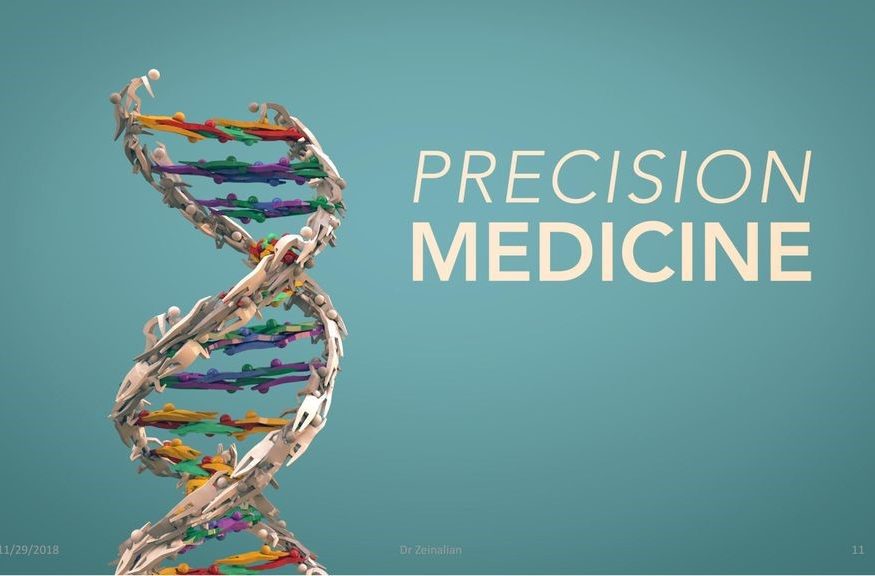As we venture further into the 21st century, the landscape of medical treatment is undergoing a transformative shift. Chronic diseases, which have long posed significant challenges to healthcare systems worldwide, are now being tackled with innovative and emerging therapies. In 2024, several cutting-edge treatments are showing promise in revolutionizing the management of chronic conditions, offering hope to millions of patients. This article delves into the most promising emerging therapies for chronic diseases, providing an informative overview of their potential impact.
Gene Editing: A New Frontier in Treating Genetic Disorders
Gene editing technologies, particularly CRISPR-Cas9, are at the forefront of emerging therapies for chronic genetic disorders. This revolutionary technique allows for precise modifications to DNA, enabling the correction of genetic mutations that cause diseases. In 2024, clinical trials are underway for conditions such as cystic fibrosis, sickle cell anemia, and muscular dystrophy.
CRISPR-Cas9 works by targeting specific sequences of DNA and making precise cuts, which can then be repaired or replaced with healthy genetic material. This method holds the potential to provide a one-time cure for certain genetic disorders, eliminating the need for lifelong management and significantly improving the quality of life for patients.
Immunotherapy: Harnessing the Body’s Immune System
Immunotherapy has already made significant strides in the treatment of cancer, and its application is now expanding to chronic diseases such as rheumatoid arthritis, multiple sclerosis, and type 1 diabetes. By harnessing the body’s immune system, immunotherapy can target and destroy diseased cells while sparing healthy ones.
One of the emerging therapies in this field is the use of checkpoint inhibitors, which block proteins that prevent the immune system from attacking diseased cells. Another promising approach is CAR-T cell therapy, where a patient’s T cells are genetically modified to recognize and attack specific disease-causing cells. These therapies are showing remarkable efficacy in clinical trials, offering new hope for patients with chronic autoimmune and inflammatory conditions.
Regenerative Medicine: Repairing and Replacing Damaged Tissues
Regenerative medicine is an exciting area of emerging therapies that focuses on repairing or replacing damaged tissues and organs. Stem cell therapy is a cornerstone of this field, with the potential to treat a wide range of chronic diseases, including heart disease, osteoarthritis, and spinal cord injuries.
In 2024, advancements in induced pluripotent stem cells (iPSCs) are making headlines. iPSCs are derived from adult cells and reprogrammed to an embryonic-like state, allowing them to differentiate into various cell types. This technology enables the generation of patient-specific cells for transplantation, reducing the risk of immune rejection and improving treatment outcomes.
Additionally, tissue engineering is making strides in creating bioengineered tissues and organs. Researchers are developing 3D-printed scaffolds seeded with stem cells to create functional tissues, offering a potential solution for organ shortages and providing new treatment options for chronic organ failure.

Precision Medicine: Tailoring Treatments to Individual Patients
Precision medicine is an emerging approach that tailors medical treatment to the individual characteristics of each patient. By analyzing genetic, environmental, and lifestyle factors, precision medicine aims to provide more effective and personalized therapies for chronic diseases.
In 2024, advancements in genomic sequencing and big data analytics are driving the growth of precision medicine. For example, in oncology, molecular profiling of tumors allows for the identification of specific genetic mutations, enabling the selection of targeted therapies that are more likely to be effective. Similarly, in cardiovascular disease, genetic testing can identify patients at high risk for certain conditions, allowing for early intervention and personalized treatment plans.
Digital Therapeutics: Integrating Technology into Chronic Disease Management
Digital therapeutics is an emerging field that leverages technology to deliver evidence-based therapeutic interventions for chronic diseases. These interventions are often delivered through mobile apps, wearable devices, and telehealth platforms, providing patients with real-time monitoring and personalized treatment plans.
In 2024, digital therapeutics are gaining traction in the management of chronic conditions such as diabetes, hypertension, and mental health disorders. For instance, mobile apps that provide personalized coaching and real-time feedback on blood glucose levels are helping patients with diabetes achieve better glycemic control. Wearable devices that monitor physical activity and heart rate are aiding in the management of cardiovascular diseases, while telehealth platforms are improving access to mental health services.
Microbiome-Based Therapies: Targeting the Gut-Brain Axis
The human microbiome, particularly the gut microbiota, plays a crucial role in maintaining overall health and has been linked to various chronic diseases, including inflammatory bowel disease (IBD), obesity, and neurodegenerative disorders. Emerging therapies that target the gut microbiome are showing promise in treating these conditions by restoring a healthy microbial balance.
Fecal microbiota transplantation (FMT) is one such therapy, where stool from a healthy donor is transplanted into the gastrointestinal tract of a patient to restore a healthy microbiome. In 2024, FMT is being explored for its potential to treat IBD, irritable bowel syndrome (IBS), and even neurological conditions like Parkinson’s disease.
Additionally, the development of microbiome-based drugs, such as probiotics and prebiotics, is advancing. These therapies aim to modulate the gut microbiota to improve health outcomes and are being investigated for their potential to treat metabolic disorders, autoimmune diseases, and mental health conditions.
RNA-Based Therapies: A New Class of Therapeutics
RNA-based therapies, including messenger RNA (mRNA) and small interfering RNA (siRNA), represent a new class of therapeutics with the potential to treat a wide range of chronic diseases. These therapies work by targeting the underlying genetic mechanisms that drive disease processes.
The success of mRNA vaccines for COVID-19 has spurred interest in RNA-based therapies for other conditions. In 2024, mRNA therapies are being developed for diseases such as cystic fibrosis, cancer, and cardiovascular disease. These therapies can be designed to produce therapeutic proteins, correct genetic mutations, or silence disease-causing genes, offering a versatile and powerful tool for treating chronic diseases.
Conclusion
The year 2024 is poised to be a landmark year in the field of emerging therapies for chronic diseases. From gene editing and immunotherapy to regenerative medicine and precision medicine, these innovative treatments hold the promise of transforming the management and outcomes of chronic conditions. As research and clinical trials continue to advance, the hope is that these therapies will not only improve the quality of life for patients but also pave the way for a future where chronic diseases can be effectively managed, if not cured.
The integration of digital therapeutics, microbiome-based therapies, and RNA-based therapies further underscores the multidisciplinary approach needed to tackle the complexities of chronic diseases. By harnessing the power of technology, genetics, and personalized medicine, we are entering a new era of healthcare that offers unprecedented opportunities for improving patient outcomes and addressing some of the most pressing health challenges of our time.




